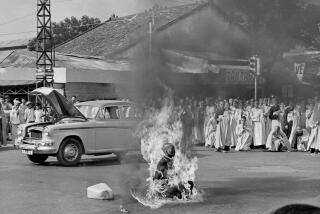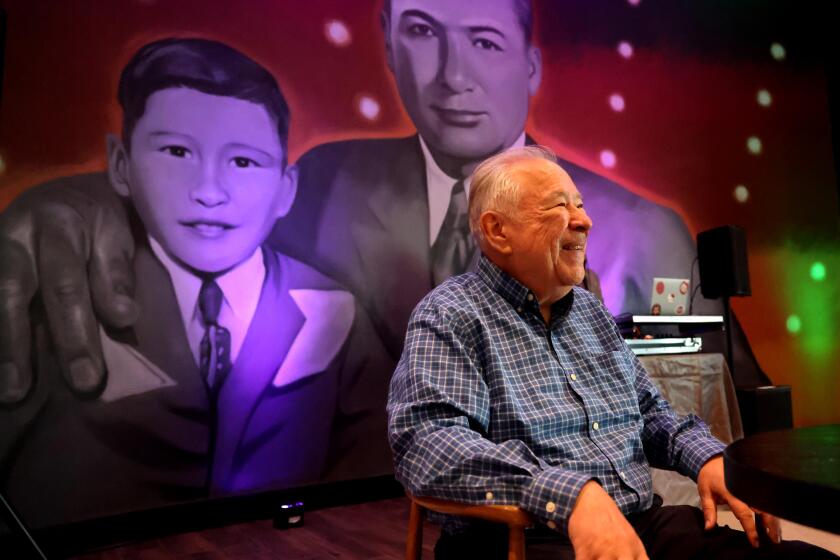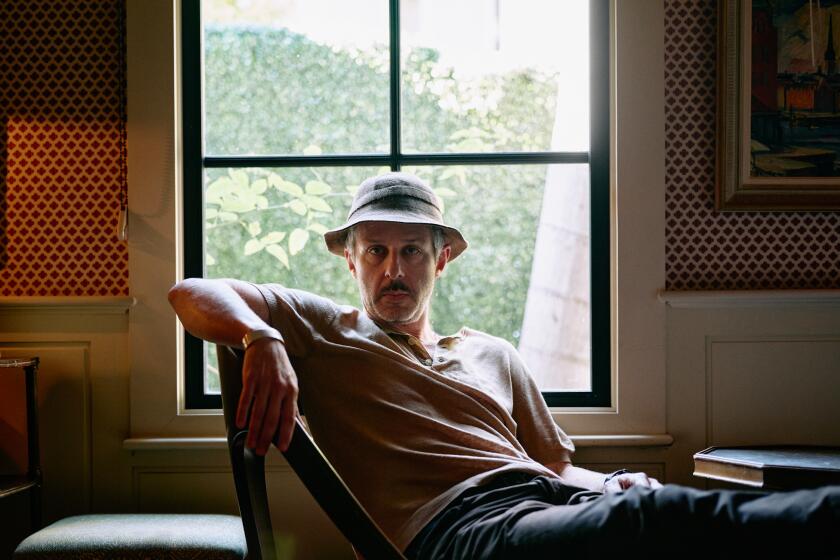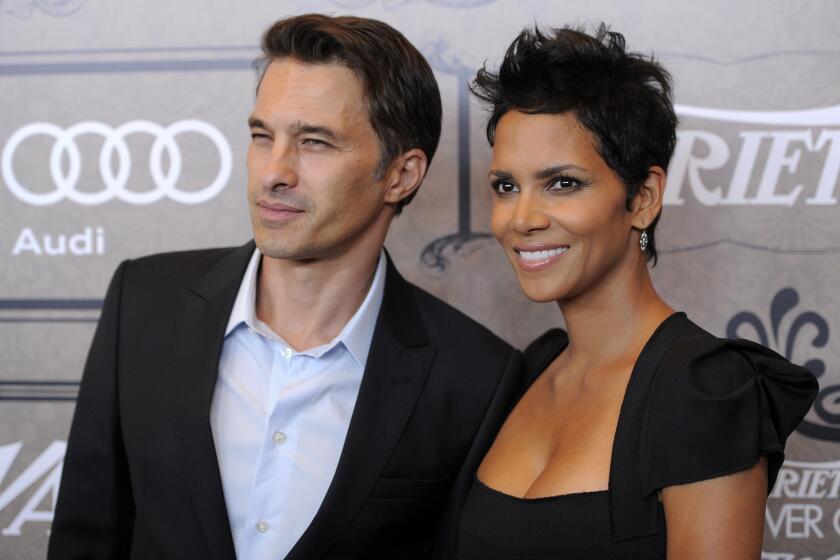MOVIE REVIEW : ‘Burning Secret’ Has Less Fire Than the Novella
Then the boy fell asleep and the deeper dream of his life began. --Stefan Zweig
Stefan Zweig’s “The Burning Secret,” a novella about a small boy who becomes the unwitting pawn in a fortune hunter’s pursuit of his lovely mother, is superb movie material. It’s a tale of passion and cruelty observed from an innocent’s eye and it’s soaked in an ironic overview on Austrian riches and romance in the early 20th Century.
But the film that writer-director Andrew Birkin has made from it (at the Fine Arts) tends to muffle the voice, dampen the splendor. It’s an ice-palace of a movie, finely crafted but frozen and immaculate, where Zweig’s story had the fine, snapping tension of a plucked violin string.
Both novel and movie focus on the emotions of the boy Edmund (David Eberts), emotionally seduced by a threadbare baron (Klaus Maria Brandauer) who desires Edmund’s mother (Faye Dunaway) and wants the boy as go-between. When the child discovers the plot, he becomes enraged, lashing out with jealous fury.
The three-cornered combat creates a sinister tension. As they whirl in their deadly game, unspoken scandal hums beneath the well-modulated surface of the royal setting: the brilliant hotel and spa, arena for wealthy indulgence and casual infidelities.
In adapting Zweig’s story, Birkin has made three crucial changes. Edmund and his mother, Austrian Jews in the story (like Zweig) have become Americans; the season has been shifted from spring to winter, and the time has shifted from before 1914 to after World War I, with the baron slyly using his exploits as a wounded veteran to entrance the credulous boy.
All three shifts are odd, though Birkin’s insertion of a harrowing Brandauer recitation of Goethe’s “Erlking” is a masterstroke. But what seems to stump him, and what makes the movie seem frostier and more remote than its newly wintry setting, is the problem of implicating us in a child’s perspective, something that Carol Reed accomplished by camera angles in “Fallen Idol,” and Lasse Hallstrom by his choice of an actor in “My Life as a Dog.”
David Eberts is an amateur: a fine, limpid-eyed camera subject, but not technically strong enough to carry the burden of changes and emotions Edmund has to go through. And Birkin’s discreet, wary camera style doesn’t help him. It could use some of the suave mobility Max Ophuls gave another Zweig novella in his classic “Letter From an Unknown Woman.”
There are some good things in “The Burning Secret.” The film has been set and designed (by Bernd Lepel) at the Czechoslovakian resort city of Marienbad, full of opulent suites and staircases and life-size chess sets. These elegant sights float along on an evocative score by Hans Zimmer.
As the baron, Brandauer really looks and acts like the character Zweig describes: a man “who needed people to act as a tinderbox, if all his talents, warmth and high spirits were to blaze up . . . on his own, as cold and useless as a match inside a matchbox.” This is how Brandauer plays him. The baron’s eyes, foxlike and glittery when he stalks his prey, go dead when he’s caught unawares. His soul seems as paralyzed as his often-fingered war wounds.
When he connects with the vital, vibrant pair--the adoring mother (played with feverish gentility by Dunaway) and her adored son--one can sense his own jealousy, his lust for passions he can no longer feel. This is what Ophuls caught so beautifully in “Unknown Woman,” what Brandauer understands and what Birkin never really develops: the moment when the man who makes a passionless game of love and sex realizes fully what that expertise has cost him.
‘THE BURNING SECRET’
A Vestron Pictures presentation of an N.F.H. Ltd./C.L.G. Films/B.A. Production. Producers Norma Heyman, Eberhard Junkersdorf, Carol Lynn Greene. Director/script Andrew Birkin. Executive producers William J. Quigley, MJ Peckos. Camera Ernest Day. Production design Bernd Lepel. Music Hans Zimmer. Editor Paul Green. Costume design Barbara Baum, Monica Jacobs. With Faye Dunaway, Klaus Maria Brandauer, David Eberts, Ian Richardson, John Nettleton.
More to Read
Only good movies
Get the Indie Focus newsletter, Mark Olsen's weekly guide to the world of cinema.
You may occasionally receive promotional content from the Los Angeles Times.










